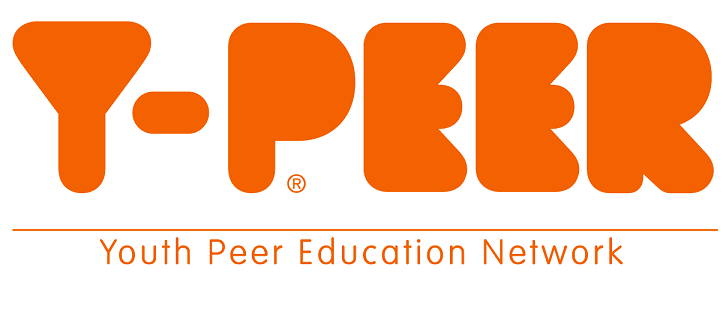In a recent survey conducted by Y-Peer Somalia, a national NGO, key findings have emerged that highlight both the strengths and challenges in vaccine acceptance and coverage within Somali communities. These insights are crucial for shaping future interventions and improving public health outcomes. Y-Peer is glad to share the survey findings and recommended strategies to enhance vaccine acceptance and coverage.
National Immunization Coverage in Somalia
Somalia’s national immunization coverage has faced significant challenges over the years. According to the World Health Organization (WHO), Somalia’s routine immunization coverage for basic vaccines remains low compared to global standards. As of recent reports, coverage for these essential vaccine hovers around 40-50%, well below the 90% threshold recommended by global health authorities to achieve immunity by the majority of affected persons. Several factors contribute to this low coverage, including prolonged conflict, political instability, poor infrastructure, and frequent displacement of populations and more recently, the COVID 19 pandemic. These issues have severely hampered the healthcare system’s capacity to deliver vaccines effectively and consistently across the country.
It is not surprising that Somalia authorities at both Federal and member state levels in 2023 welcome the global initiative “the big catch up” aimed at accelerating immunization country-wide. In an effort to combat preventable diseases and enhance immunization coverage, two new vaccines are planned for introduction in Somalia. These are: Rotavirus Vaccine and Pneumococcal Conjugate Vaccine (PCV). Rotavirus Vaccine is a vaccine which targets rotavirus, a leading cause of severe diarrhea among young children worldwide. Rotavirus infection can lead to dehydration and even death in severe cases. Introducing the rotavirus vaccine is expected to significantly reduce the incidence of rotavirus-related illness and mortality in Somali children.
Pneumococcal Conjugate Vaccine (PCV) on the other hand protects against pneumococcal diseases caused by the bacterium Streptococcus pneumoniae. These diseases include pneumonia, meningitis, and sepsis, which are major health concerns in Somalia. The introduction of the PCV is anticipated to lower the rates of pneumococcal infections and improve child health outcomes.
The baseline survey was an essential activity in informing a campaign to raise awareness about the planned vaccines. Carried out in 7 regions of Somalia over the month of April 2024, key findings from the Survey offer useful insights:
Trust in Vaccination Programs
A promising foundation for vaccination efforts is the existing trust in vaccination programs and healthcare providers. The majority of respondents expressed agreement or strong agreement regarding vaccination coverage within their households, reflecting a significant level of confidence in the current systems. This trust is a vital asset that can be leveraged to further improve vaccine uptake.
Barriers to Vaccine Acceptance
Despite the general trust, several barriers hinder vaccine acceptance. Insecurity, misinformation, and lack of awareness are primary obstacles. These factors are exacerbated by the limited availability of vaccines in certain regions, which is particularly challenging in areas affected by insecurity. Moreover, concerns about potential adverse reactions to vaccines and misinformation contribute to vaccine hesitancy.
Diverse Information Sources
The community accesses information from a variety of sources, including health workers, the internet and social media, radio, phone messages (SMS), community meetings, and television. This underscores the necessity of multi-channel communication strategies to effectively reach diverse segments of the population. Notably, radio and SMS are the most favored sources of information, highlighting their importance in any communication strategy.
Need for Targeted Awareness Campaigns
To address the specific concerns and perceptions within the community, targeted awareness campaigns are essential. These campaigns should aim to dispel misinformation, build trust in vaccination programs, and address barriers such as insecurity and lack of awareness. Tailored communication strategies that leverage both traditional and digital platforms are crucial for improving vaccine acceptance and coverage.
Importance of Contextual Factors
Contextual factors, such as the fragility of the healthcare system and regional challenges, significantly influence vaccine acceptance and access. Initiatives must take these factors into account when designing and implementing awareness campaigns to ensure their relevance and effectiveness.
Recommendations
Based on these findings, several recommendations have been proposed to enhance vaccine acceptance and coverage:
There is need to strengthen trust in vaccination programs through transparent communication and active community engagement. This ties in with the importance of implementing targeted interventions to address specific barriers, such as insecurity, misinformation, and lack of awareness. This calls for concerted effort by state and non-state actors in Somalia. In terms of approach, it would be strategic to utilize a multi-channel approach to disseminate information about vaccination, leveraging both traditional and digital platforms. This is given the diverse circumstances and needs of various communities in Somalia.
This also implies that communication teams will need to design and implement awareness campaigns that cater to the specific needs and preferences of the community, taking into account cultural sensitivities and local contexts. Y-Peer is putting all these factors into consideration as it carries out the awareness campaign. Set for a year, the team will work with the Ministries of Health, Gavi Fund Initiative, local leaders and civil society to ensure that effective monitoring and evaluation mechanisms are in place to assess the impact of interventions on vaccine acceptance and coverage.
Let us all join hands as health stakeholders, to improve vaccine acceptance and coverage within the community. This, in turn, will contribute to better health outcomes and enhanced disease prevention. Support the “the big catch up” global effort on immunization. Let us all work together to minimize avoidable death of Somali children. For further information, please contact: info@ypeerso.org.
